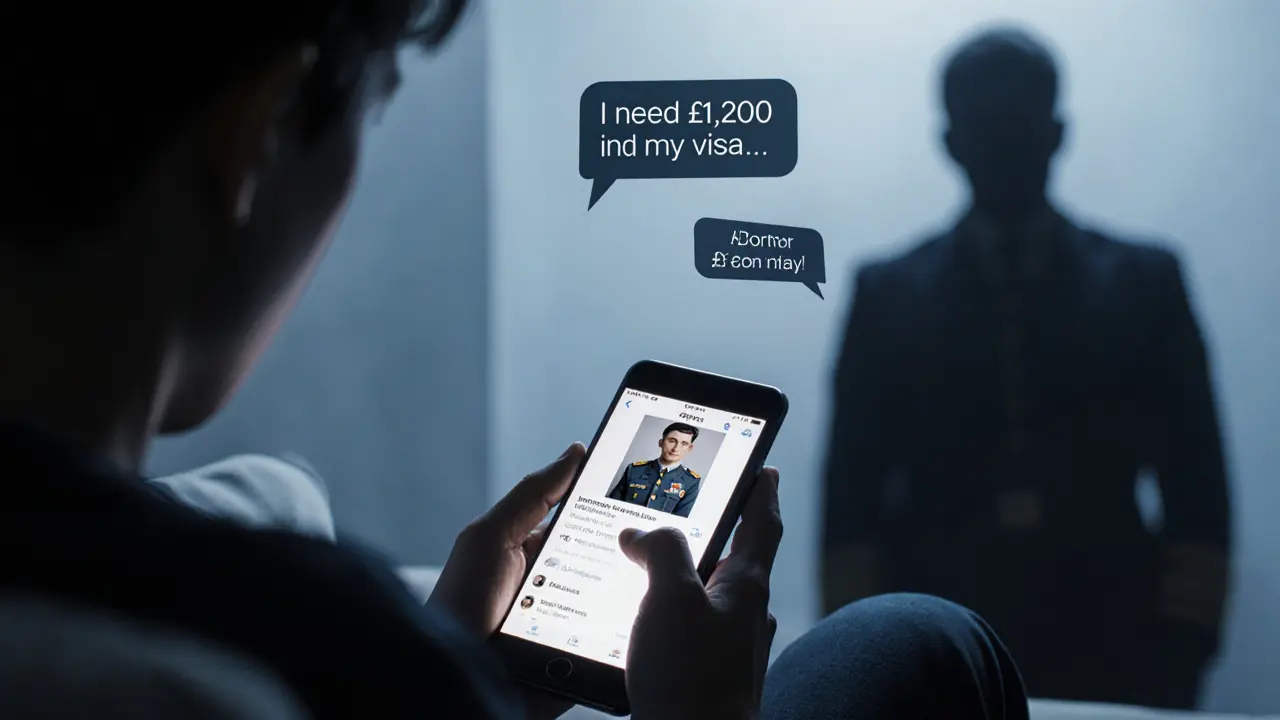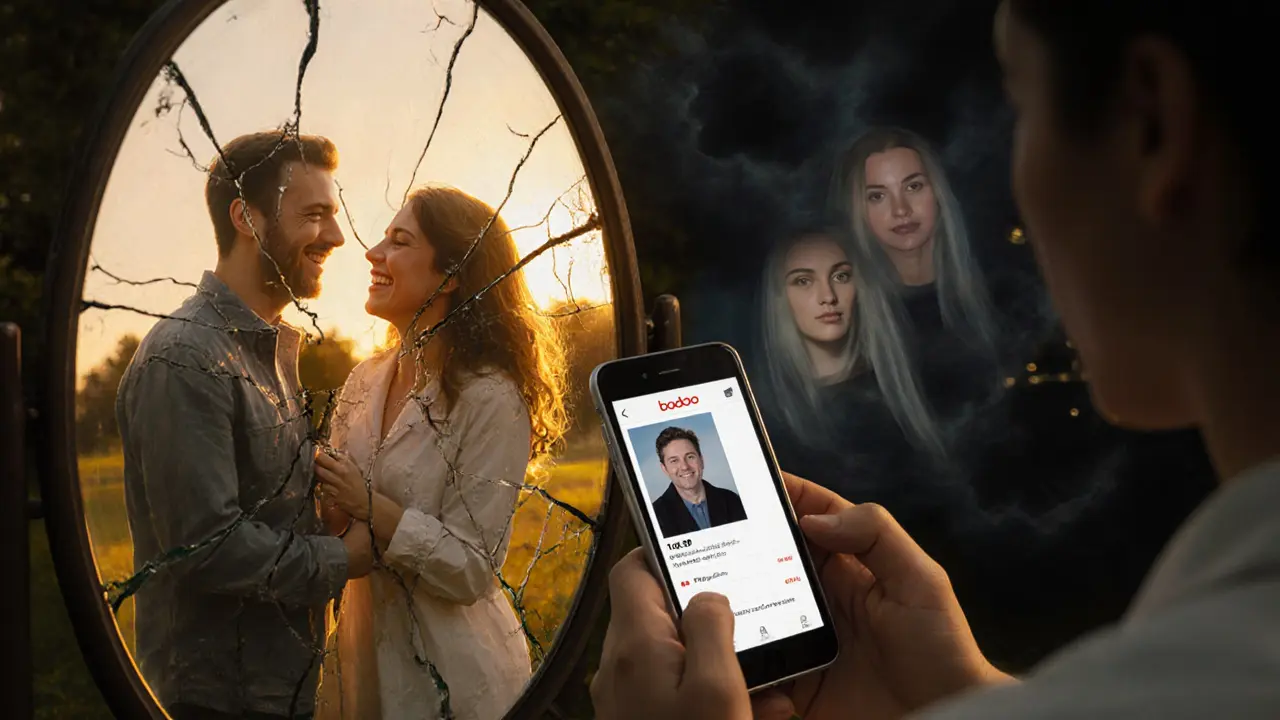
You open Badoo, swipe right on someone who looks perfect, and within minutes you’re texting like you’ve known them for years. Then they ask for money. Or vanish. Or send you a photo that makes your stomach drop. You’re not alone. Badoo, once hailed as the go-to euro date app, has spent years under fire - not for being outdated, but for being dangerously broken.
What’s the real problem with Badoo?
Badoo isn’t just another dating app with bad UI. It’s a platform that has repeatedly failed to protect users from scams, fake profiles, and predatory behavior - especially targeting people looking for genuine connections across Europe. While apps like Tinder and Hinge have tightened security, Badoo’s approach has stayed stuck in 2012: grow at all costs, worry about safety later.
Here’s the hard truth: if you’re using Badoo to meet someone for a real date - not just a fling - you’re playing Russian roulette with your personal safety and finances.
Key takeaways
- Badoo has thousands of verified fake profiles run by scam gangs
- Users report losing hundreds to thousands of pounds in romance scams
- The app’s reporting system is slow, useless, or completely ignored
- Many profiles use stolen photos from Instagram or Facebook
- Badoo’s customer service often blames victims instead of fixing the problem
How Badoo became a magnet for scams
Badoo launched in 2006 as a simple social network for Europeans. By 2015, it had over 300 million users - mostly young adults in Eastern Europe, Latin America, and the UK. Its appeal? Free to use, easy to sign up, and flooded with people looking for casual dates.
But here’s what the marketing didn’t tell you: Badoo made money by keeping users hooked, not by keeping them safe. The app’s algorithm rewards users who send more messages - even if those messages are automated, scripted, or fake. Scammers quickly figured out how to game the system.
Today, an estimated 30-40% of active profiles on Badoo are bots or scam accounts, according to user reports and third-party investigations. These aren’t lone wolves. They’re organized operations - often based in Eastern Europe - using AI tools to generate fake photos, auto-reply to messages, and build emotional trust over weeks before asking for money.
One user from Bristol, Sarah, met someone on Badoo who claimed to be a British soldier stationed in Germany. They talked daily for six weeks. He sent her “photos” of himself in uniform. He talked about missing her. Then he asked for £1,200 to cover a visa fee so he could visit her. She sent it. He vanished. The photos? Stolen from a real soldier’s public Facebook page. The name? A common Russian alias.
Why fake profiles thrive on Badoo
Unlike apps like Hinge or Match, Badoo doesn’t require ID verification. You don’t need to upload a government-issued photo. You don’t even need to confirm your email. That’s not a feature - it’s a vulnerability.
Scammers exploit this by:
- Using stolen photos from Instagram, Pinterest, or Google Images
- Creating fake names that sound local (e.g., “Emily from Manchester”)
- Writing messages that feel personal - even using your name and interests from your profile
- Asking for small amounts first (£20-£50) to build trust, then escalating
- Using WhatsApp or Telegram to move conversations off Badoo, where they can’t be reported
Worse, Badoo doesn’t flag these patterns. If you report a profile, you might get an automated reply saying, “We’ve reviewed your report.” That’s it. No follow-up. No action. No warning to other users.

Real stories from real victims
Reddit threads and Trustpilot reviews are full of horror stories:
- A 68-year-old widow from Leeds sent £8,000 over 10 months to someone claiming to be a widower in Ukraine. She lost her life savings.
- A student in Manchester was tricked into sending £1,500 for “emergency surgery” - the person was actually a 22-year-old in Moldova using a stolen identity.
- A couple from Cardiff met on Badoo, planned to meet in person, and were later blackmailed with fake nude photos they never sent.
These aren’t rare cases. They’re the norm.
According to Action Fraud (the UK’s national reporting center for fraud), Badoo was mentioned in over 1,200 romance scam reports in 2024 - up 40% from 2023. And that’s just the ones people reported.
Why Badoo won’t fix this
Badoo’s parent company, Badoo Limited, is based in Cyprus and operates under minimal regulatory oversight. Their business model depends on high user engagement - not user safety. The more messages sent, the more ads shown, the more premium subscriptions sold.
They’ve made minor tweaks: a “verified” badge you can pay for, a report button, and a vague “community guidelines” page. But they’ve never:
- Introduced mandatory photo ID verification
- Used AI to detect stolen images
- Blocked mass messaging from new accounts
- Shared scammer data with law enforcement
In 2023, a whistleblower leaked internal emails showing Badoo employees knew about the scam surge - but decided against stricter verification because it would “reduce sign-ups by 15%.” That’s not negligence. That’s a choice.
What to expect if you use Badoo
If you’re still thinking of using Badoo, here’s what you’re signing up for:
- First week: You’ll get 5-10 matches. Most will be attractive, responsive, and seem genuinely interested.
- Week 2-3: Conversations get deeper. They’ll share stories about family, work, travel - all carefully crafted to feel real.
- Week 4: They’ll mention a sudden crisis - a sick relative, a lost passport, a visa issue. They need money. Now.
- Week 5: You’re asked to send cash via Western Union, Revolut, or cryptocurrency. They’ll pressure you to keep it secret.
- Week 6: They disappear. Your messages go unanswered. Their profile vanishes.
And if you report them? You’ll get a generic reply. Your account might even get flagged for “spamming” because you sent too many messages trying to get answers.

Badoo vs. other dating apps: Safety comparison
| Feature | Badoo | Tinder | Hinge | Bumble |
|---|---|---|---|---|
| Mandatory ID verification | No | Optional (paid) | Yes (free) | Yes (free) |
| Photo reverse image search | No | Yes (AI-powered) | Yes | Yes |
| Scam detection alerts | No | Yes (in-app warnings) | Yes | Yes |
| Response time to reports | 7-30 days (if ever) | 2-5 days | 1-3 days | 1-4 days |
| Conversation off-platform blocking | No | Yes | Yes | Yes |
Look at that table. Badoo isn’t just behind - it’s the only one offering zero automatic protection. If safety matters to you, you’re better off using any of the others.
Frequently Asked Questions
Is Badoo safe to use for dating?
No, Badoo is not safe for serious dating. The app has no real safeguards against scams, fake profiles, or predators. While you might meet someone genuine, your odds are low - and the risks are high. If you’re looking for a relationship, not a financial disaster, avoid Badoo entirely.
Can you get your money back if you’re scammed on Badoo?
Almost never. Once you send money via wire transfer, crypto, or gift cards, it’s gone. Badoo doesn’t handle payments, so they won’t refund you. Your only chance is reporting it to Action Fraud or your bank immediately - but even then, recovery is rare. Prevention is your only real defense.
How do I spot a Badoo scammer?
Watch for these red flags: they avoid video calls, use stock or stolen photos, move conversations to WhatsApp quickly, mention sudden emergencies, ask for money within days of meeting, or have a profile with no friends, no posts, and no real details. If their story feels too perfect, it’s fake.
Why does Badoo still exist if it’s so dangerous?
Because it makes money. Badoo’s revenue comes from ads and premium subscriptions - not from user safety. More users = more clicks = more profit. They don’t need to fix the problem to keep earning. Until regulators force them to, they won’t.
What should I use instead of Badoo?
Try Hinge or Bumble - both require photo verification and have active scam detection. If you want to meet people locally, use Meetup or local hobby groups. Real connections happen in real life, not in a bot-filled app with zero accountability.
Final word: Don’t risk it
Badoo isn’t just a bad app - it’s a trap. It preys on loneliness, hope, and the human need to connect. And it does it profitably.
If you’ve been burned by Badoo, you’re not foolish. You were targeted by professionals who know exactly how to manipulate trust.
The best thing you can do now? Delete the app. Block every profile. Report what you can. And next time you want to meet someone new - look outside the app. Join a book club. Take a class. Walk your dog in the park. Real connections don’t need algorithms. They just need you to show up - safely.
